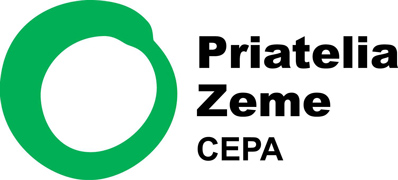For Immediate Release May 3, 2002
The Center for Environmental Public Advocacy (CEPA), a Slovak branch of the CEE Bankwatch Network and member organization of Friends of the Earth Slovakia has submitted today its position on the chapter on Competition Policy to Günter Verheugen, commisioner for enlargement. The closure of this chapter by the European Commission (EC) is one of the conditions which must fulfilled if the Slovak Republic is to join the European Union. The chapter on Competition Policy is generally considered to be one of the most important out of a total of 29 chapters defining the specific measures to make the Slovak legislation and its implementation in various areas compatible with the EU directives. CEPA calls upon the EC to ensure that the Slovak Government uses transparent state aid in a way which complies with the public interest and to immediately cancel a set of laws which sharply contradict the current EU directive regulating competition, and which cause serious distortion to the business environment in Slovakia. These laws (including provisions on long-term tax relief in the income tax act, an act on investment incentives, an act on significant investments, and an act on industrial zones, etc.) were designed to attract foreign investments, which were expected to induce a broad range of positive effects, particularly in the economically backward regions of Slovakia. However, according to Roman Havlicek, FDI project coordinator at CEPA “the way in which the legislation on investment incentives was created and implemented proves that these measures were not primarily intended to stimulate regional development or reduce unemployment. In fact, these measures have given rise to new forms of unfair direct and indirect state aid granted to private enterprises without any public control or involvement in the process of decision making.” Although the undefined notion of ´public interest´ is oftentimes referred to in connection with government support to foreign investments, “the documents that serve as the basis for granting incentives are not publicised and the process of decision-making is not transparent,” Havlicek added. The size of the investment is typically taken as the main, and often the only, criterion upon which the government decides to subsidize a foreign investor, CEPA states. The quality of the investment, its contribution to regional development and employment, and impact on the business environment, are taken as criteria of secondary significance, if at all considered. Additionally, the EC frequently raises questions about controversial incentives for investors. According to the Commission, the tax holiday scheme under the act on income tax "does not respect specific requirements for the provision of state aid to sensitive sectors, such as steel industry, motor industry, shipbuilding and industry of synthetic fibres”. Another problem is represented by the lack of institutional control of state aid in Slovakia. The State Aid Office (SAO) was established in January 2000 as a separate body of state administration for the assessment, evaluation, authorisation, and registration of state aid. However, according to Juraj Zamkovsky, CEPA executive director “instead of acting as a safeguard against the misuse of public funds, the new institution is creating opportunities to funnel public funds in support of causes that are often not in the public interest.” In its position paper CEPA drew attention to frequent violations of the act on state aid by the SAO in favour of large private corporations, for example steel companies: “There are solid grounds to believe that the real intention behind granting state aid to Slovak steel companies was to clear the debts accumulated in the group of VSZ a.s. prior to selling its core business to US Steel and thus have the Slovak taxpayer bear the cost of the bailout.” A breach of budget discipline plus unauthorised, uneconomic, and irregular spending of funds from the state budget and the violation of a variety of laws by the SAO were also confirmed by the inspection performed by the Finance Ministry in April 2001. The inspection by the Government Office in May and June 2001 revealed serious violations of the law concerning the assessment, evaluation, and approval of state aid. In eight out of ten randomly selected cases the inspectors held that the state aid had been approved in conflict with the law. The total value of these transactions represented more than SKK 11.5 billion (appr. MEUR 270). In its position on the tax holidays granted to US Steel pursuant to §35 of the Income Tax Act, the European Commission states: "any aid provided to US Steel on this basis will constitute a breach of the Europe Agreement... ...unless the state aid for US Steel is in compliance with the rules applied by the Community, it will represent a serious impediment to the closure of Chapter 6 – Competition Policy." CEPA also draws attention to the correlation between the competition policy and regional development. According to the organisation, uncontrollable subsidies to projects outside the less favoured regions will largely reduce the amount of public funds available to aid the most needy. This might generate pressure on increased assistance from the pre-accession, and subsequently, structural funds of the EU. There is a risk that if the Commission remains tolerant to the practices that circumvent the state aid rules in Slovakia, the final bill will be paid from the EU taxpayers’ money.
For more information: Roman Havlicek, CEPA / FoE-Slovakia Tel/fax: +421 45 5331775 E-mail: Táto e-mailová adresa je chránená pred spamovacími robotmi. Na jej zobrazenie potrebujete mať nainštalovaný JavaScript.

